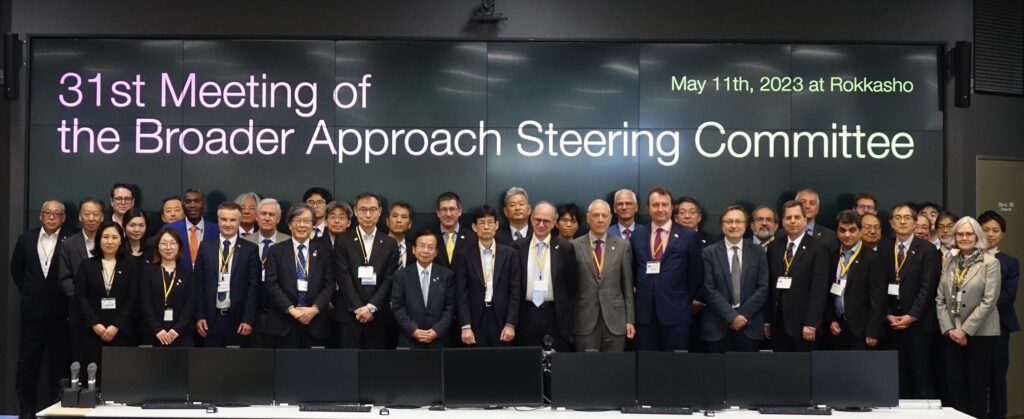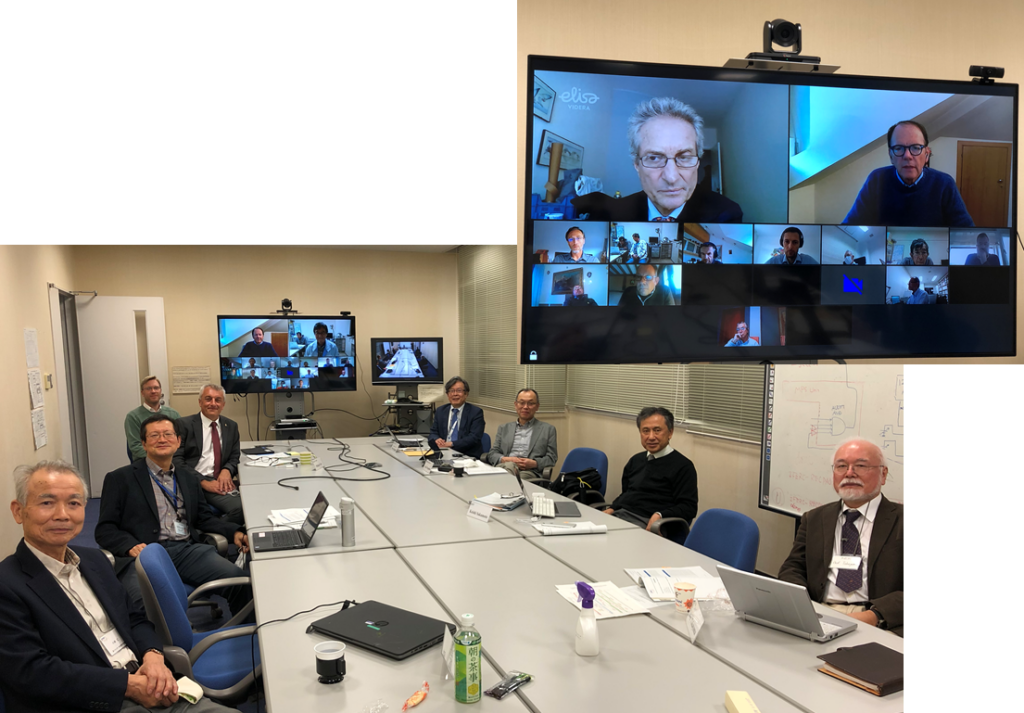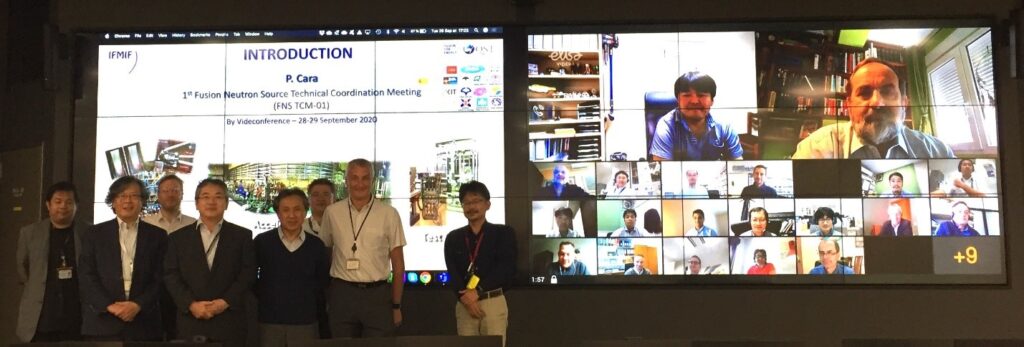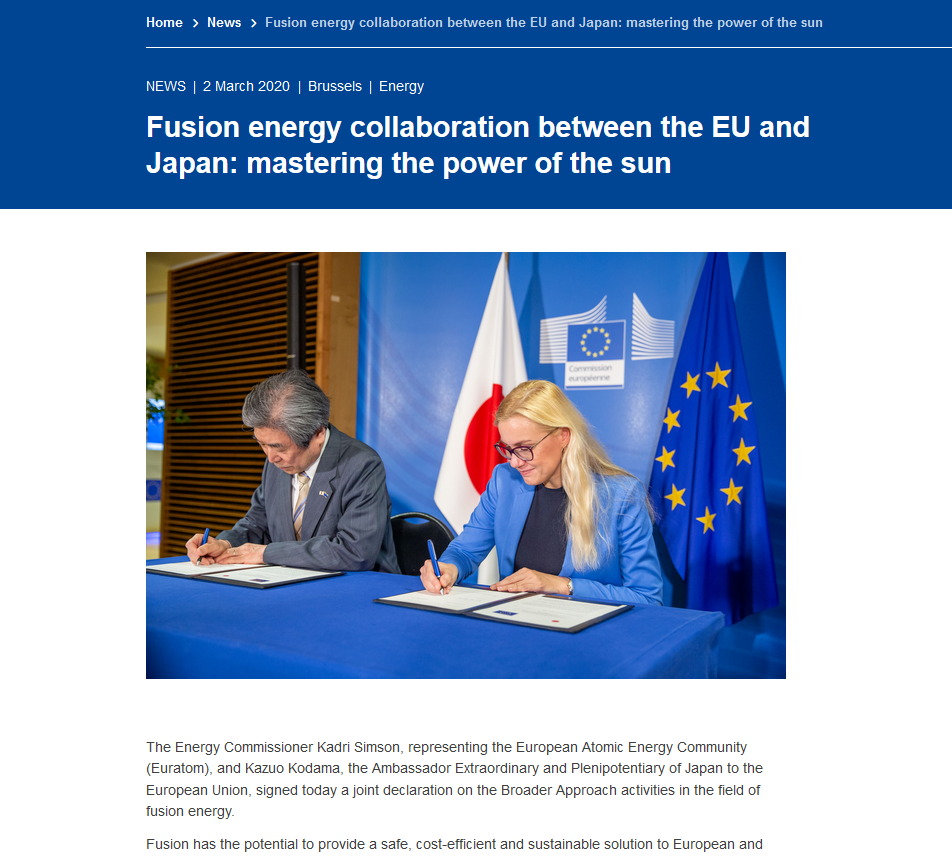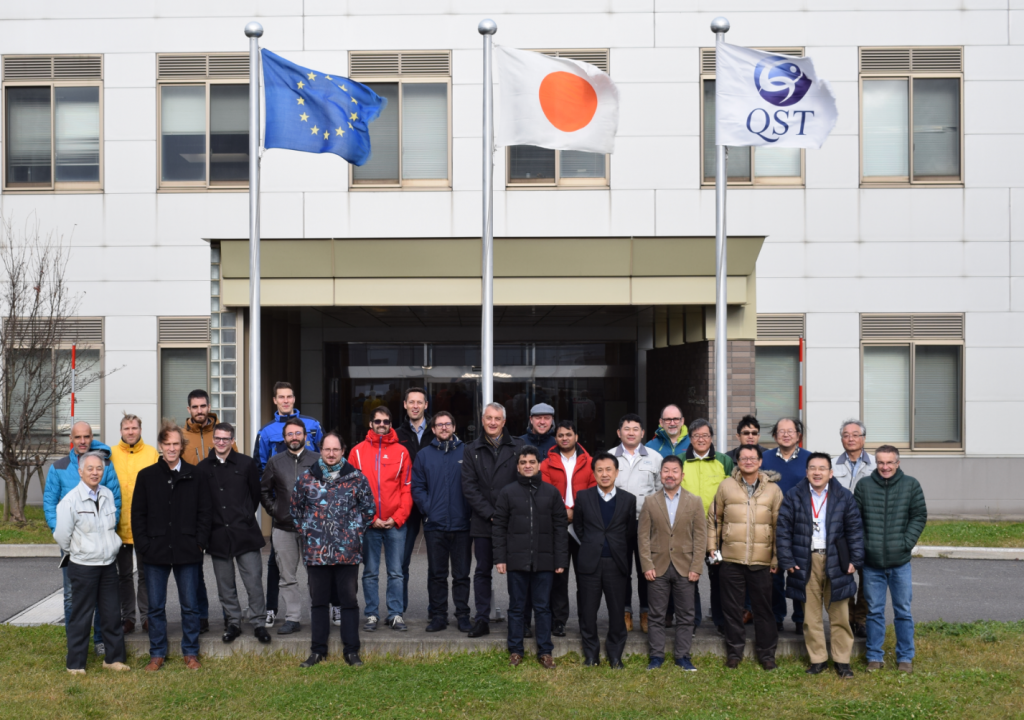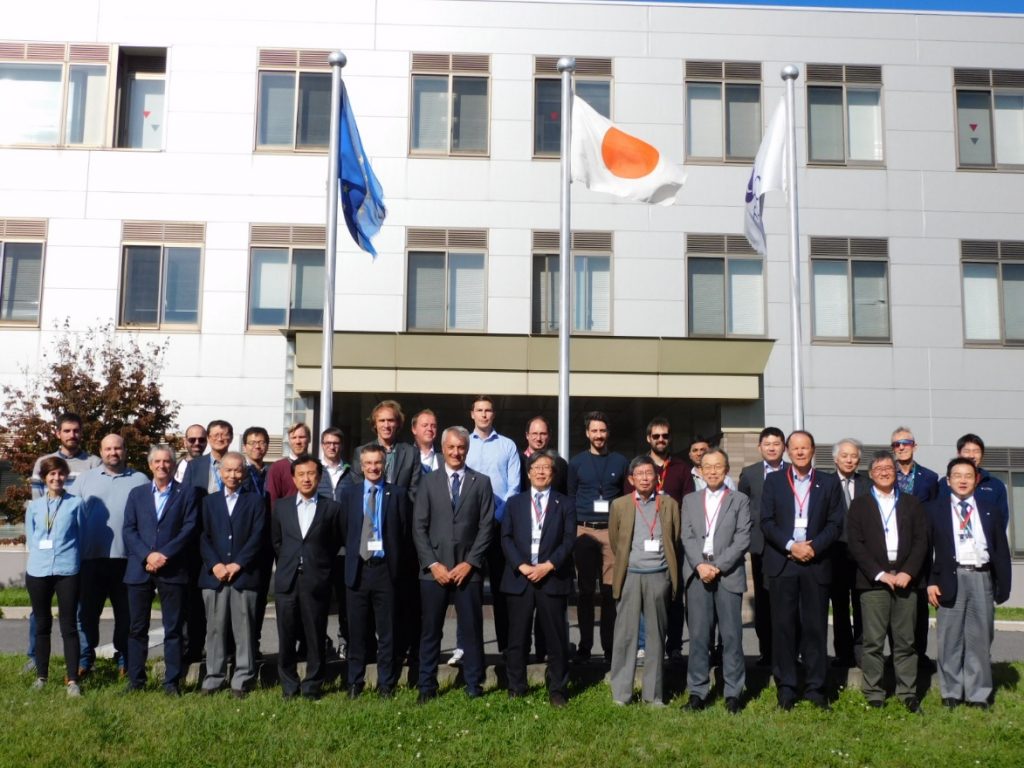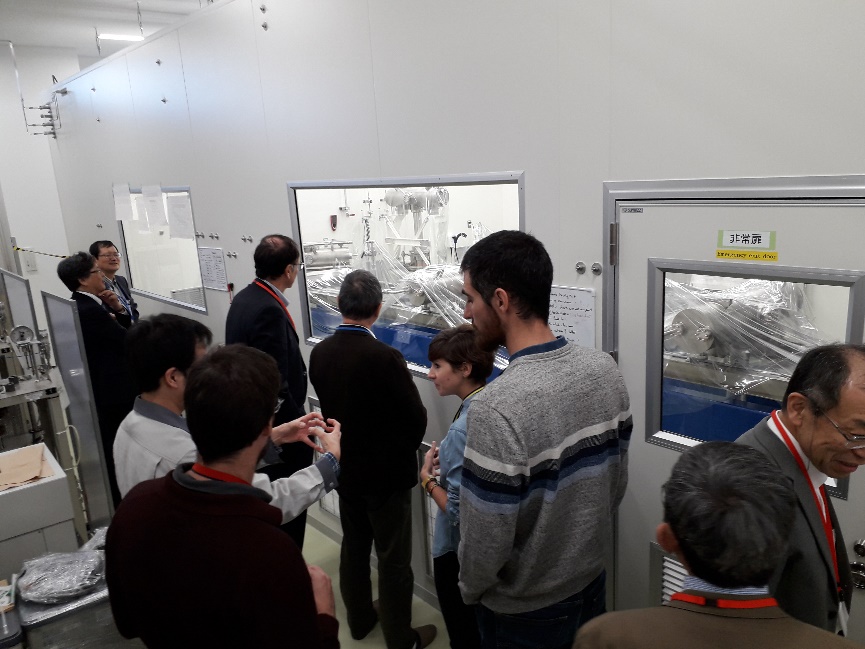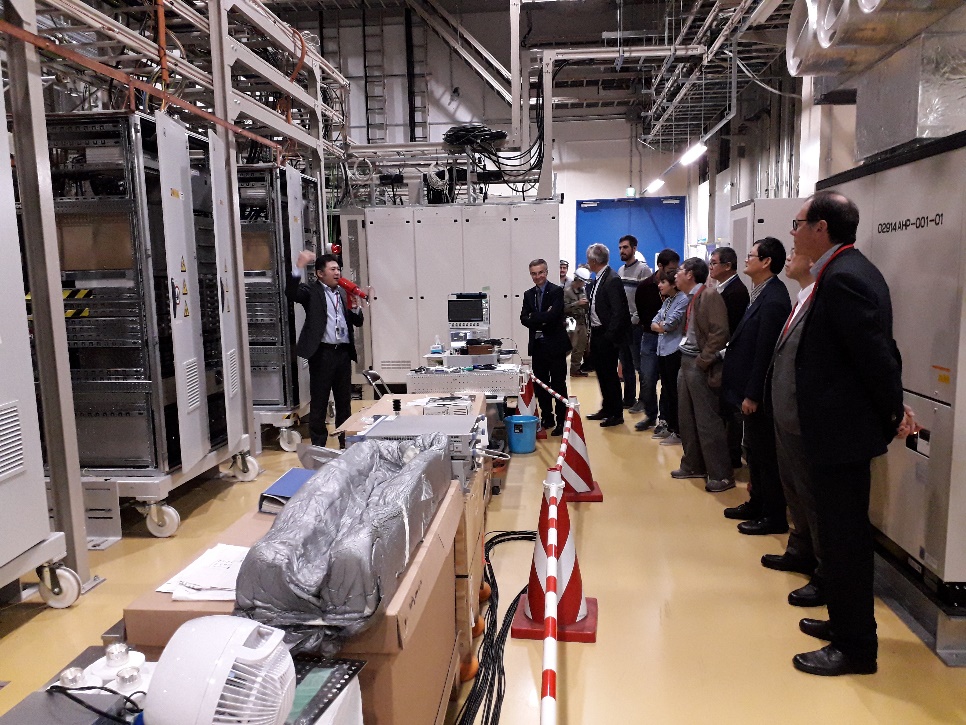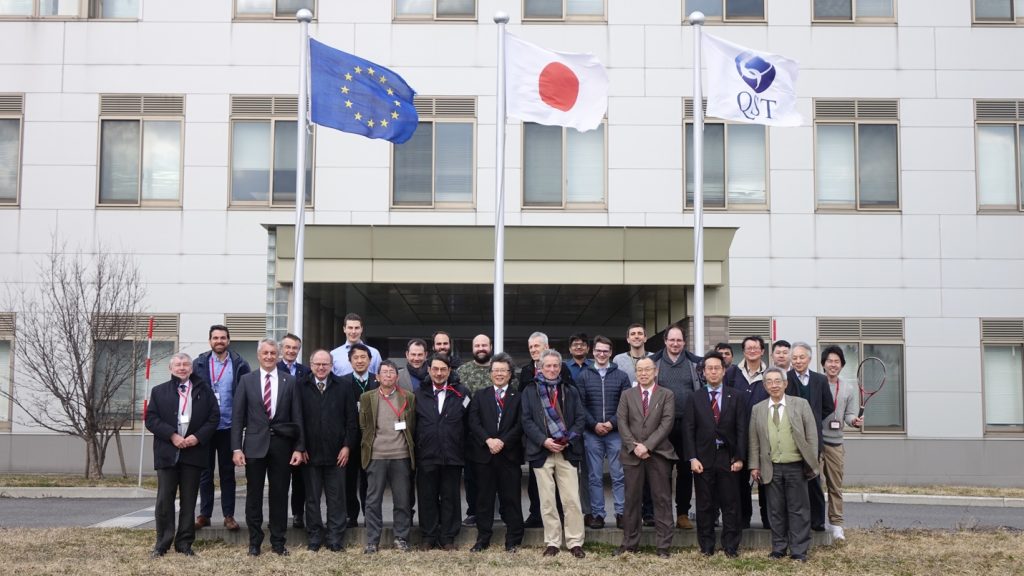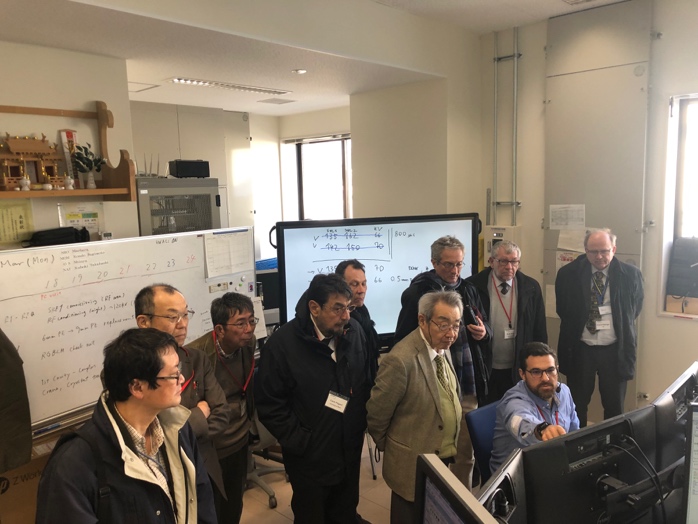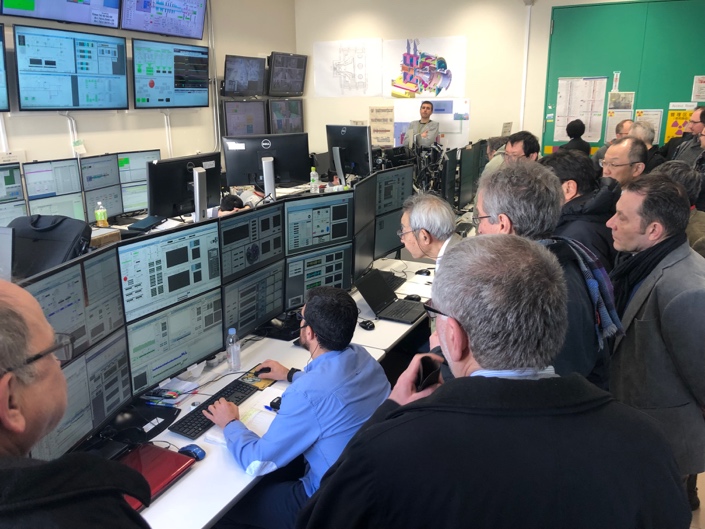The 33rd Project Committee (PC#33) was held on the 21st and 22nd of March 2024 at the QST Rokkasho Institute for Fusion Energy. For the first time since their appointment last year, all the EU PC members could attend the meeting in person, giving them the opportunity to visit the site and see the accelerator installation in its phase B+ configuration.
The first day was dedicated to the LIPAc progress with many highly technical presentations. The main topics highlighted were as follows:
• The outcomes of beam operations during the completion of phase B+ stage 2 and the start of the stage 3 toward high duty cycles,
• The finalization of the refurbishment of some SRF Linac components, in particular the completion of the repair of the last solenoid, which will enable resuming soon the assembly in the clean room,
• The status of the RFQ couplers conditioning and its current limitation,
• The update of the LIPAc commissioning plan to give priority to the installation of the SRF Linac in order to limit impact on the overall project schedule.
On the second day, the Fusion Neutron Source Design activities were presented by each Home Team showing especially the collaboration in the use of LIPAc as a testing facility for many new sensors and diagnostics. The steady progress was also presented for the enhancements activities with an upgraded injector, a new Radio-Frequency Power System based on Solid-State Power Amplifier and the upgraded Machine Protection System. The day finished with the PC members reviewing and approving the Record of Conclusions acknowledging the progress of the work.





